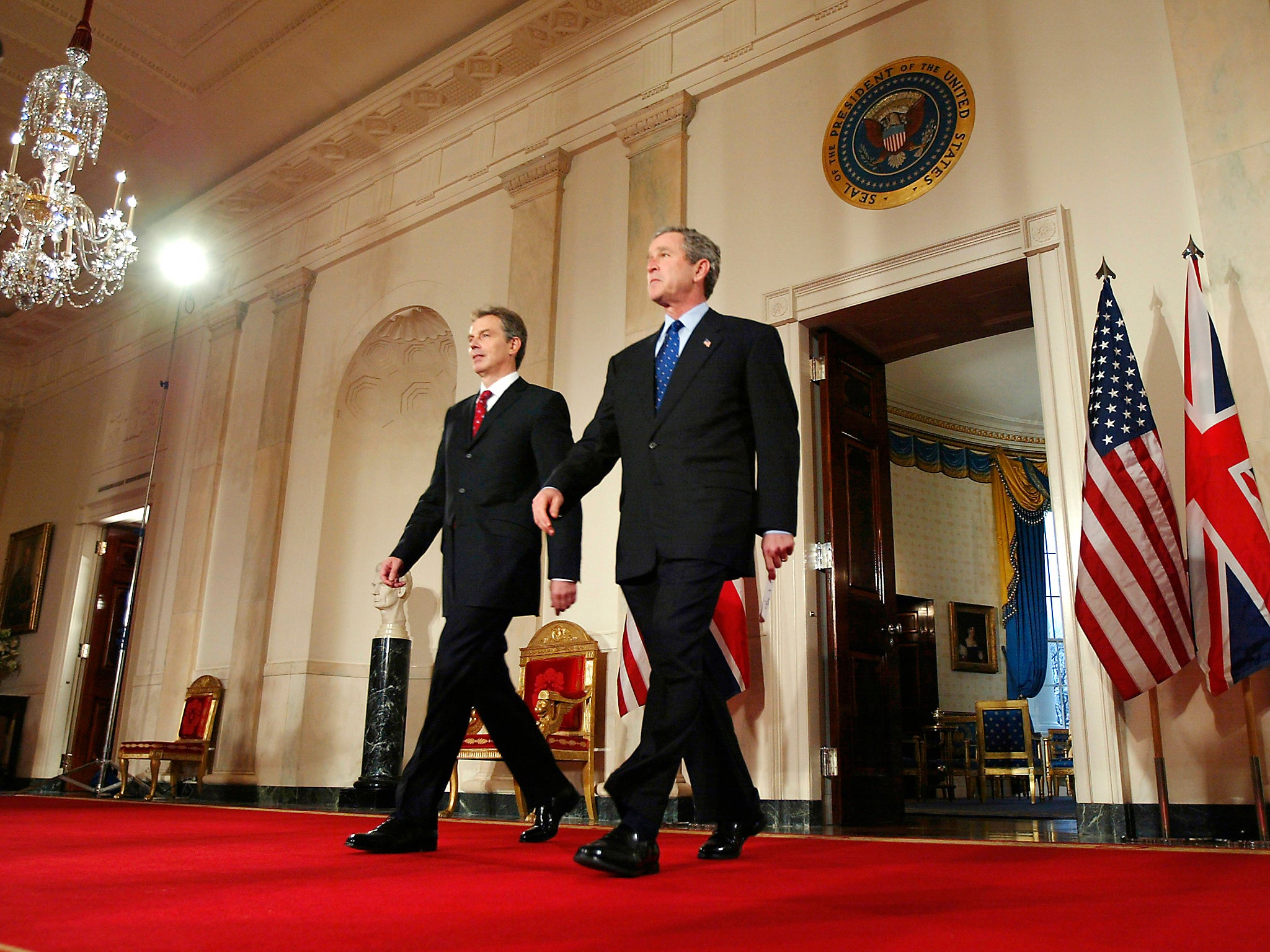We should have learned after Iraq – but Brexit shows we are still willing to blindly follow politicians into disaster
Sir John Chilcot's new comments on Tony Blair relying on 'belief rather than fact' has chilling parallels with our present day political dilemma


In a wide ranging interview with the BBC, Sir John Chilcot said Tony Blair was “not straight with the nation” and relied on belief rather than fact to take Britain into the Iraq War.
That the conflict was an unmitigated disaster, a historic mistake that casts a pall over the body politic to this day, is now accepted by just about everyone not completely won over by that belief at the time. And even by some who were.
But have we really learned anything? Has Sir John’s report into the conflict, and what he said during that interview, taught us anything?
With the country embarking on another historic mistake – Brexit – I’d say not.
On the face of it, there wouldn’t appear to be all that many parallels between the two, but there are if you think about it.
Brexit, too, is motivated by belief in opposition to fact, and expert advice.
Just as happened prior to the Iraq war, it had a corps of fierce partisans backing it, people who were willing to deploy a tissue of lies and half truths to convince a narrow majority of the public of their case.
Just as then, tens, hundreds, of thousands have taken to the streets in protest, only to be ignored or, worse still, to have their patriotism and loyalty called into question.
“I think the country’s had enough of experts,” said the member for Murdoch Central, Michael Gove, who was, at the time, the home news editor of The Times, a newspaper that supported the war. It speaks volumes, doesn’t it?
The big difference between the two is, of course, that Brexit will not see brave young men and women put in harm’s way. Nor will there be any killing of civilians by stray ordinance.
Poverty kills, mind. So, if the economic fallout from Brexit is as bad as some fear, there will be blood on the hands of its backers. A lot less than was shed in Iraq, it is true, but blood all the same.

Belief rather than fact. In a modern, wealthy democracy, which provides an education for its people, it shouldn’t be that way. But it is.
Blair’s reliance on belief is what makes him such a problematic figurehead for those who would oppose the country’s current lunacy. He’s a “big beast”. A genuine talent, in an age when they are extraordinarily hard to find in British politics.
By comparison to him, both sides of the continuing Brexit debate look small, mean and timid.
But it is all but impossible to call upon the man who once led the country down a deep, dark hole to try and save it from another, as has sometimes been mooted.
Chilcot’s comment doesn’t really cast any new light on things. Most everyone who has followed this story will already have been aware that belief won with Blair. And those who still back his decision, in the face of all the evidence showing that it was a bad one? Their minds will never be changed. They too are motivated by a belief, one that has turned into a faith, just as it is faith that motivates Brexiteers.
Faith can be a dangerous thing if the certainty it confers on adherents is destructive.
Iraq proves that too. The pity of it is we are still prone to blindly follow zealots.
There was a brief moment when it looked like we had understood, or least when MPs showed that they might have understood.
Despite intense pressure being put upon them, they denied David Cameron when he asked for permission to bomb Syria in the wake of an appalling chemical attack that was almost certainly the work of the Assad regime.
Another Labour leader, Ed Miliband, speaking after the vote, said Britain had “learned the lessons of Iraq”.
It looks like he got that wrong.
Given the pit into which politics has descended of late, the shabby deal the Conservatives entered into with a party of faith-based sectarian zealots from Northern Ireland, I’m not sure we will be able to trust Parliament to save us the next time it is tested.
Brexit is an act of economic and geopolitical stupidity, but despite the paranoid fantasies of some in the Brexit camp about EU armies with designs on forcing Britain into a superstate – and yes there are people who actually think that – no weapons will be drawn. No gun will be fired and no bomb will be dropped. Let’s be thankful for that, at least.
However, there will come a time, and perhaps quite soon, when a Prime Minister calls for weapons to be raised and bombs to be dropped, based on the belief that it is the only way to solve some awful problem somewhere.
It will matter not that the facts show that violence only results in more violence, and solves nothing, particularly in the quagmire that is the Middle East.
Belief will win out. And people will die.
Join our commenting forum
Join thought-provoking conversations, follow other Independent readers and see their replies
Comments
Bookmark popover
Removed from bookmarks